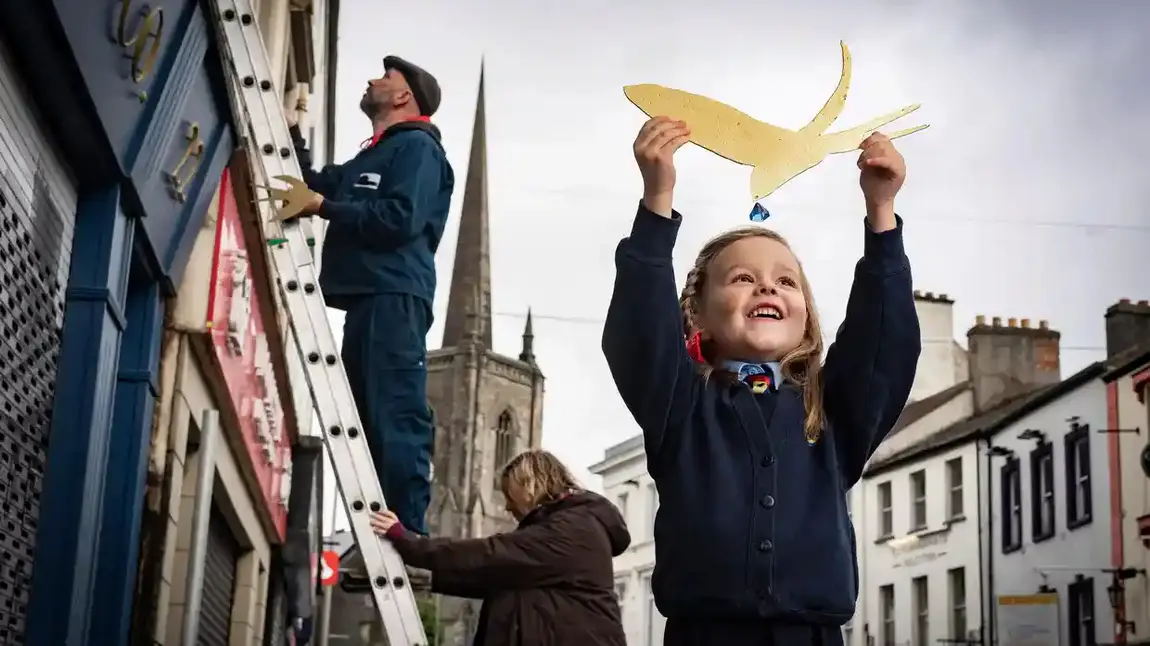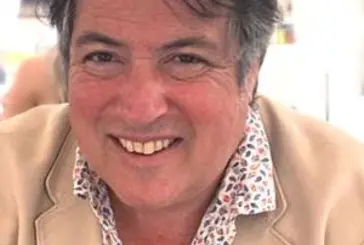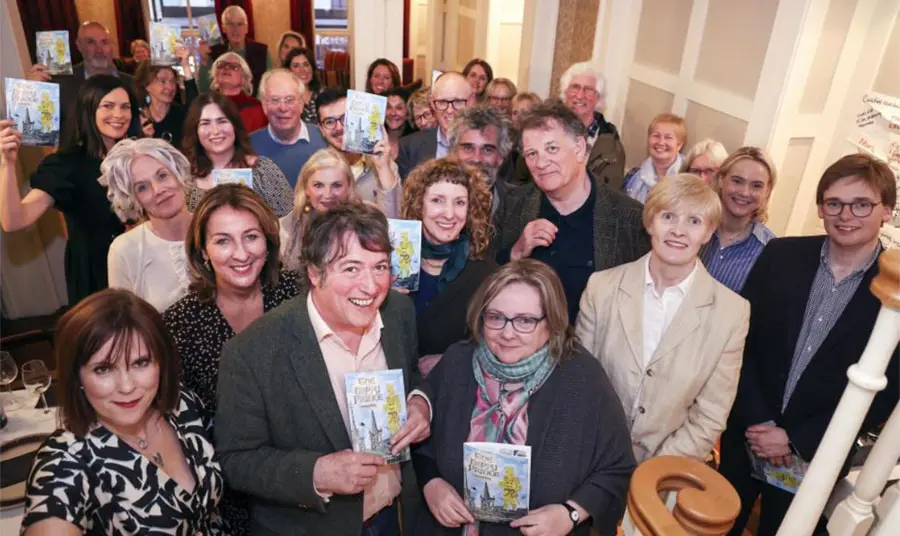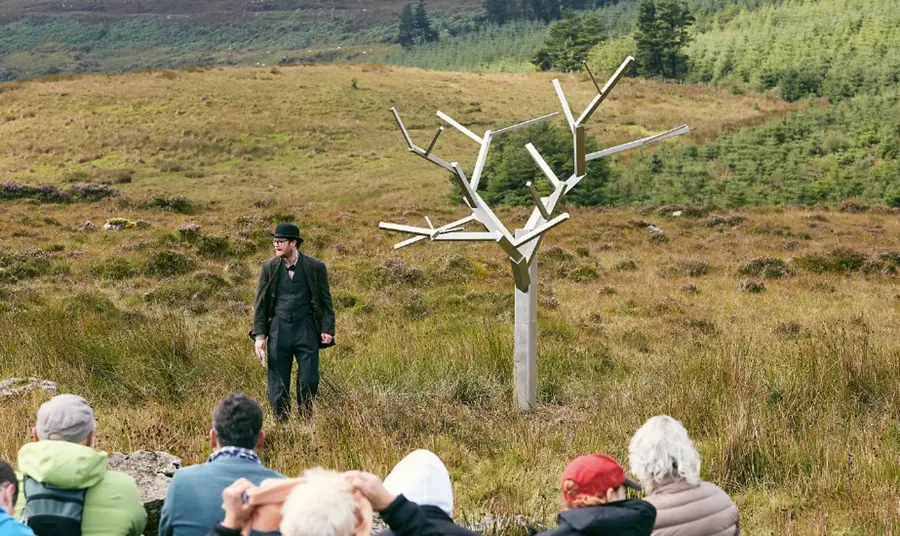Inspiring pride in place through a volunteer-supported festival

As the Irish literary scholar, Declan Kiberd, once said, there is “unused potential buried in the past and present”.
It’s this potential that we’re aiming to excavate by tapping into Enniskillen’s rich literary heritage.
The lakelands, rolling hills, villages and towns of Fermanagh and its border counties were home to global giants of the literary world – Beckett, Wilde, Heaney, Swift, Yeats, Kavanagh and Friel among them.
Happy Days is a programme of public art, festivals, installations and educational projects we have been running throughout Enniskillen for the past 10 years. It has laid roots for the region’s future as an international place of cultural heritage celebrating the lives and works of the storytellers who emerged from there.
And all this in what for many years was perceived as a setting of contested heritage, where imaginings of new possibilities vied with the lingering shadow of The Troubles.
This rural town has shown that it can achieve something of a really high standard and bring the outside world in.
New ideas
Our current mission is to understand how the identity and character of Enniskillen is being transformed through its commemorated and lived heritage. The hundreds of local volunteers who have supported our programme over the past decade are crucial to this exploration.
Thanks to a grant from the Heritage Innovation Fund – and working alongside a cohort of over 30 heritage professionals, led by The Young Foundation – we have developed Festival Tales. It’s a creative research programme to capture the experiences and aspirations of individuals and the community.
We are discarding the rulebook of ‘top down’ expert-led approaches in favour of a more ‘bottom up’ participatory approach, with roundtable and one-to one discussions, storytelling workshops and open calls for ideas.
The cohort has really helped us with questions that we wouldn’t have thought of asking. So instead of ‘Did you enjoy the festival?’ we’re asking questions like ‘What if the Happy Days programme hadn’t existed, what would have been missing from Enniskillen now?’. I would never have thought of asking that, but it’s turned out to be the most important question we’ve asked.
And just hearing about what the other projects in the cohort are doing has been invaluable. DigVentures is really interesting. I learned a huge amount from them about crowdsourcing. That’s how our call for stories came about, from their experience of crowdsourcing.
Purpose and pride
What we’re learning through Festival Tales is that the Happy Days programme has given the town and its people the confidence to punch above their weight. This rural town has shown that it can achieve something of a really high standard and bring the outside world in.
And the volunteers – who are shopkeepers, teachers, grandparents, young people, artists, business and civic leaders, many with intersectional identities and diverse traditions – have developed friendships, learned new skills and gained confidence.
The big themes coming though are about deep connection, sense of purpose, and pride in place, both individually and collectively.
This is vital intelligence that will contribute to our strategy for growing literary heritage in Enniskillen as intrinsic to and interwoven with its past, present and future.
Making connections
Sometimes you hear the argument that literature, a literature festival, feels quite elitist. The same is sometimes said about heritage. But we are determined to make it inclusive. We have found the best way to do that is through public engagement, just talking to people.
One year, Antony Gormley created a tree for the festival, which we carried up a mountain for a reading of Beckett’s Waiting for Godot. The audience followed us up the hill – it was called Walking with Waiting for Godot.
We didn’t get permission to walk through a farm to get to the mountain and the farmer came out and said: ‘What on Earth is going on?’. We explained it was a performance and he said: ‘A performance about what?’. And we explained the book was about two lads who are waiting for someone called Godot and Godot doesn’t really arrive. The farmer said: ‘Oh my God, that’s completely my life. I’m always waiting for someone to come here’. And he told us to go ahead with the performance.
That’s such a lovely story for me – it’s the story of the festival, of people connecting with literature, of the past and the present coming together.
About Paul
Paul Sternberg is the Co-Chair of Happy Days Enniskillen and works in social and civic innovation. His background is in broadcasting, community organising and academia and he has held senior leadership roles at Channel 4, Business in the Community and the National Endowment for Science Technology and the Arts (NESTA). Paul has also been involved in setting up social ventures such as Action for Happiness, The Media Trust, Key4Life and the international arts programme, Arts Over Borders.





